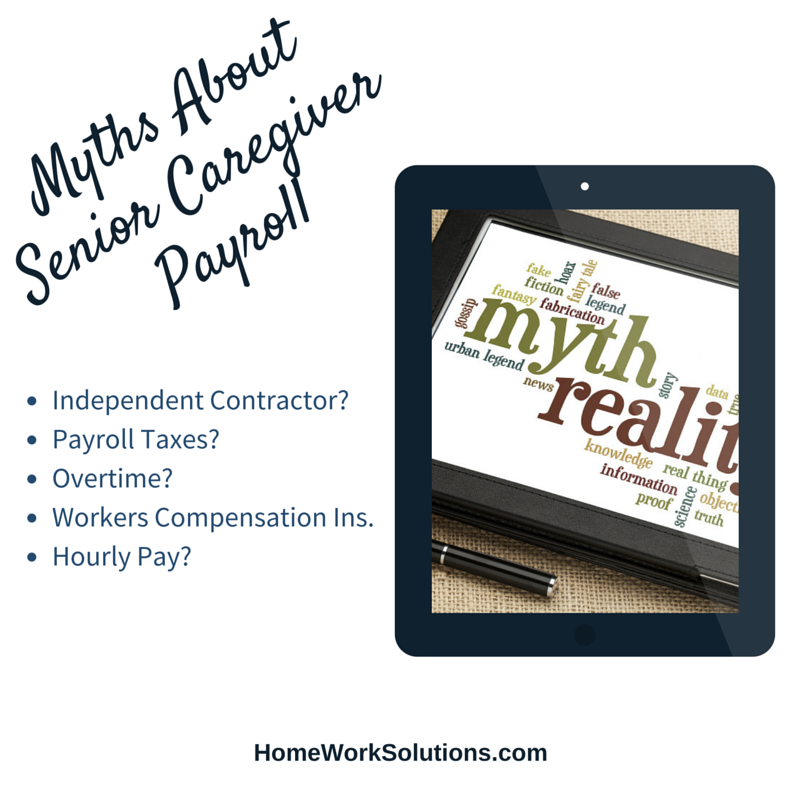
If you’re thinking about hiring a senior caregiver this year, it’s crucial to do your research and be sure you know how to go about it – especially when it comes to payroll. There is a lot of misinformation online that can be confusing for families. Here, we’ll break down myths versus facts so you know exactly how to pay your caregiver fairly while withholding proper taxes.
Myth #1: She’s an independent contractor.
Did you know that if your senior caregiver works 40 hours or more a week that the law will likely consider your caregiver an employee, not an independent contractor? As the employer, you are responsible for understanding the differences between the two and how you should pay them correctly, with taxes deducted properly.
Myth #2: She's not a nanny, I don't have to pay nanny taxes.
Whether it’s a nanny or a senior caregiver, your in-house employee is exactly that: an employee. When you have a person working for you in your home on a weekly basis as a caregiver, there are federal, tax, and other state labor laws that must be upheld. For many families, doing taxes by yourself can be overwhelming and confusing, yet they still try to figure it out themselves. There are some ins and outs of preparing taxes for your employee and if you don’t do them right, you could make a simple mistake that could mean unexpected penalties, taxes, or other costs. Plan ahead and work with a household payroll specialist from the very beginning in order to help you avoid costly errors.
Myth #3: I don’t have to pay overtime.
Under most circumstances, employees must be paid overtime of 1.5 times their regular rate of pay for the hours that they have worked over the 40-hour mark. State laws may require weekly or daily overtime as well. If you’re not sure what your state law requires, talk to your household payroll specialist.
Myth #4: Household employees are not entitled to worker’s compensation coverages.
Many states have mandates in place that require household employers to have a Worker’s Compensation Insurance Policy. There are a variety of legal requirements that go into getting this insurance which vary from state to state. It will not only protect the employee, but it will protect you as the employer from liabilities and other expenses that come with a work-related accident or injury. Do not assume that this kind of liability is covered under your homeowner’s insurance policy, but instead talk to a household payroll specialist about your state’s specific requirements.
Myth #5: You don’t need to track employee’s time.
New laws require that employers providing wages to their employee will have the burden of proof showing that you have tracked the employee’s time and wages. This means you have to prove that you have paid your employee fairly and that they were not short changed out of payment that was due. To do this, create and follow a written work agreement and state the hourly rate as well as the overtime rate. Keep detailed weekly time tracking records – the more detailed records you keep, the better protected you are in the event of a dispute or other situation that requires you to prove the documentation of wages.
Myth #6: Having a senior caregiver is complicated and time consuming.
Hiring a senior caregiver may be a new process that you and your family have had to figure out, but it should not be a complicated and time consuming thing, especially if you work with a professional household payroll specialist that can help navigate all of the paperwork, tax processes, and other ins and outs that you may not anticipate along the way.


